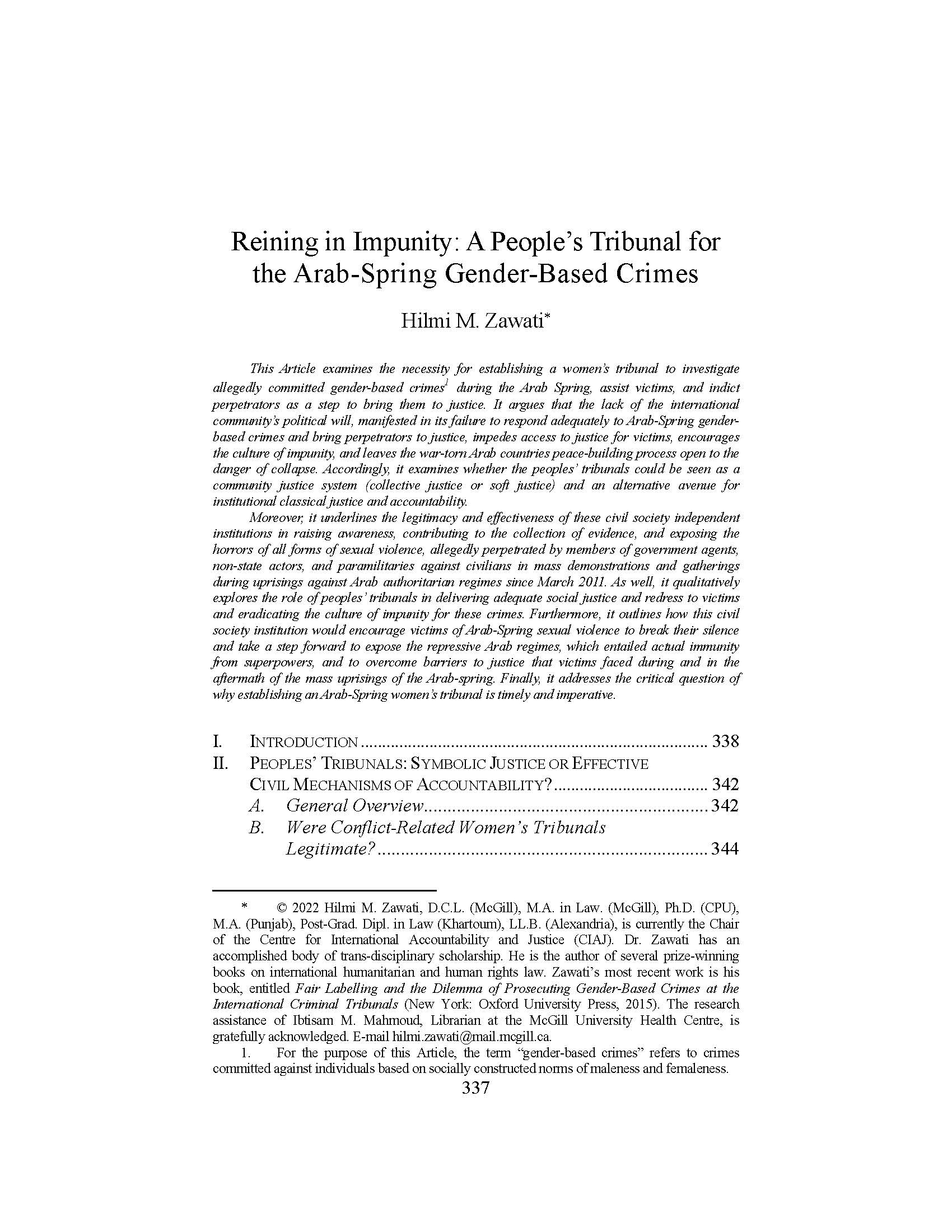Reining in Impunity: A People’s Tribunal for the Arab-Spring Gender-Based Crimes
Abstract
This Article examines the necessity for establishing a women’s tribunal to investigate
allegedly committed gender-based crimes1 during the Arab Spring, assist victims, and indict
perpetrators as a step to bring them to justice. It argues that the lack of the international
community’s political will, manifested in its failure to respond adequately to Arab-Spring genderbased
crimes and bring perpetrators to justice, impedes access to justice for victims, encourages
the culture of impunity, and leaves the war-torn Arab countries peace-building process open to the
danger of collapse. Accordingly, it examines whether the peoples’ tribunals could be seen as a
community justice system (collective justice or soft justice) and an alternative avenue for
institutional classical justice and accountability.
Moreover, it underlines the legitimacy and effectiveness of these civil society independent
institutions in raising awareness, contributing to the collection of evidence, and exposing the
horrors of all forms of sexual violence, allegedly perpetrated by members of government agents,
non-state actors, and paramilitaries against civilians in mass demonstrations and gatherings
during uprisings against Arab authoritarian regimes since March 2011. As well, it qualitatively
explores the role of peoples’ tribunals in delivering adequate social justice and redress to victims
and eradicating the culture of impunity for these crimes. Furthermore, it outlines how this civil
society institution would encourage victims of Arab-Spring sexual violence to break their silence
and take a step forward to expose the repressive Arab regimes, which entailed actual immunity
from superpowers, and to overcome barriers to justice that victims faced during and in the
aftermath of the mass uprisings of the Arab-spring. Finally, it addresses the critical question of
why establishing an Arab-Spring women’s tribunal is timely and imperative.
